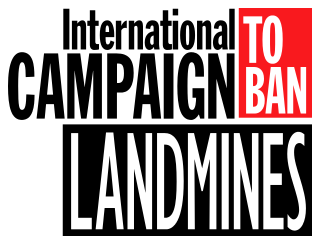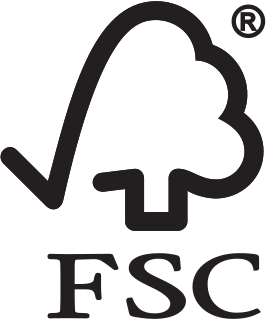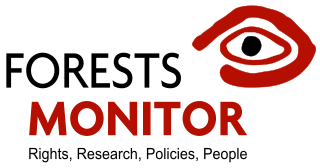
The International Campaign to Ban Landmines (ICBL) is a coalition of non-governmental organizations whose stated objective is a world free of anti-personnel mines and cluster munitions, where mine and cluster munitions survivors see their rights respected and can lead fulfilling lives.

The Forest Stewardship Council A. C. (FSC) is an international non-profit, multistakeholder organization established in 1993 that promotes responsible management of the world's forests via timber certification. It is an example of a market-based certification program used as a transnational environmental policy.
Service Civil International (SCI) is an international peace organisation. Since 1920, it organises international volunteering projects in the form of workcamps and it was the first organisation worldwide to do so. The organisation was founded by Swiss pacifist Pierre Cérésole in the aftermath of World War I in order to foster understanding and a culture of peace between people from different countries.

The International Union of Forest Research Organizations (IUFRO) is a non-profit, non-governmental international network of forest scientists, headquartered in Austria.The aim of the organization is to promote worldwide cooperation in scientific studies embracing the whole field of research related to forests and their use and sustainable development. In 2019 IUFRO counted 630 Member Organizations worldwide.
Size of Wales is a climate change charity with the aim of conserving an area of tropical rainforest twice the size of Wales. The project currently supports 7 forest protection projects and 1 tree planting project across Africa and South America. The charity focuses upon furthering the promotion of rainforest conservation as a national response to the global issue of climate change.
Taiga Rescue Network (TRN) was an international network of more than 200 non-governmental organizations, indigenous peoples and individuals working to defend the world's boreal forests, also known as Taiga. TRN was established in 1992 to give a voice to support, link and publicize local struggles fighting for the boreal forests and its peoples. TRN no longer exists. In 2010, TRN held its last conference in Sweden. The website remained online until April 2013.

The Rainforest Foundation Fund is a charitable foundation founded in 1987 and dedicated to drawing attention to rainforests and defending the rights of indigenous peoples living there.
The Coalition for the International Criminal Court (CICC) is an international network of NGOs, with a membership of over 2,500 organizations worldwide advocating for a fair, effective and independent International Criminal Court (ICC). Coalition NGO members work in partnership to strengthen international cooperation with the ICC; ensure that the court is fair, effective and independent; make justice both visible and universal, and advance stronger national laws that deliver justice to victims of war crimes, crimes against humanity and genocide. The CICC Secretariat is hosted by the World Federalist Movement-Institute for Global Policy (WFM-IGP) and has offices in New York City, near the United Nations (UN), and in The Hague, The Netherlands. Additionally, the CICC has regional offices in Belgium, and Peru.

Forests Monitor is a non-governmental organization that was established in Cambridge, England, in 1993, to support forest-dependent people and raise public awareness about the negative impact that industrial forest exploitation has on the people that live in these forests and on the ecosystems that support them, including the wide range of plants and animals. Their aim is to provide detailed research on forestry companies and their activities to NGOs and interested citizen's groups, and so support and empower those people affected by bad practices. Forests Monitor is a non-profit, non-governmental organisation.

The World Rainforest Movement (WRM) is an international initiative created to strengthen the global movement in defense of forests, in order to fight deforestation and forest degradation. It was founded in 1986 by activists from around the world.
Saskia Luutsche Ozinga is a Dutch environmental and social activist. She is the facilitator of the Forest Movement Europe (FME) and the co-founder of the NGO FERN, which she was the campaigns coordinator, between 1995 and 2017.
Fern is a Dutch foundation created in 1995. It is an international Non-Governmental Organization (NGO) set up to keep track of the European Union's involvement in forests and coordinate NGO activities at the European level. Fern works to protect forests and the rights of people who depend on them.
Iola Leal Riesco is a Spanish environmental and social activist working for European Forest Institute and Well Grounded. Her educational background is in the field of forest and human ecology. Since 2003 she has been working to help solve the challenges of integrating environmental issues into EC Aid policies and improve governance in forests globally. Her work continues to center upon EU policies as well as following closely the EU action plan for Forest Law Enforcement, Governance and Trade. In 2010, she set up with Cath Long the organisation Well Grounded, which provides services and support to African civil society organisations working with communities to help them assert their rights and to improve forest governance.

Cool Earth is a UK-based international NGO that protects endangered rainforest in order to combat global warming, protect ecosystems and to provide employment for local people.
The Rainforest Foundation UK (RFUK) is a non-profit NGO working in Africa and South America. It is one of the first international organizations to support the indigenous peoples of the world's rainforests in their efforts to protect their environment and fulfill their rights to land, life and livelihood. The Foundation aims to protect rainforests by securing the land rights of indigenous peoples and other forest-dependent communities. It also campaigns internationally on issues such as industrial logging, climate change, agricultural expansion and nature conservation.
The Foundation for Socio-Economic Justice (FSEJ) was founded in 2003 as an umbrella organization with a primary vision of initiating broad civic education programs to encourage democratic participation and raise awareness on human and constitutional rights amongst the rural populations of Eswatini. The primary goal of FSEJ is to help build a solid and unified mass based democratic force.

EUROGEO is a European scientific society, which networks geographers. It is an international non-governmental organisation. Since 1987 EUROGEO has been a participative member of the Conference of International NGOs of the Council of Europe. The association is involved in national and international activities and projects in geography including those related to education and training. It is a not profit organisation, which aims to develop, support and promote policies designed to advance the status of geography; establish and promote cross-border cooperation; promote education and training in geography from a European perspective and represent nationally and internationally the views of its members.
Rainforest Foundation Norway (RFN) is a non-governmental organization (NGO) working to protect the world's rainforests and to secure the legal rights of their inhabitants. It is one of the largest rainforest organizations in the world, and collaborates with around 70 local and national environmental, indigenous and human rights organizations in 7 rainforest countries in the Amazon region, Central Africa and Southeast Asia. The organization works to support people in securing their rights and increase people's level of commitment to rainforest protection; to prevent policy and business interests from contributing to the destruction of the rainforest; and to consolidate policy and practice that serve to protect it. RFN engages in advocacy work in key international processes concerning rainforest issues.
The Ministerial Conference on the Protection of Forests in Europe is a pan-European ministerial level voluntary political process for the promotion of sustainable management of European forests.
The European Union Forest Law Enforcement, Governance and Trade Action Plan is a European Union initiative to address illegal logging and the social, economic and environmental harm it causes. The EU adopted the Action Plan in 2003. The plan includes activities in the EU and in tropical countries that export timber and timber products to the EU. These measures include a regulation that prohibits EU businesses from importing or trading illegal timber, and bilateral trade agreements with timber-exporting countries. Much of the FLEGT Action Plan focuses on promoting trade in legal timber products and creating disincentives for trade in illegal products. However, the Action Plan's measures go further by addressing aspects of poor governance that enable illegal logging to persist.